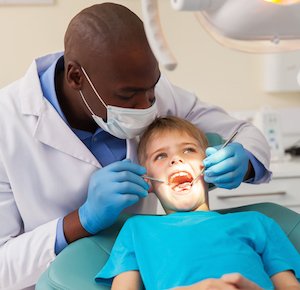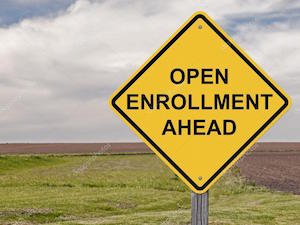The topic of Medicare and Medicaid dental coverage causes a lot of confusion for people looking for a way to help pay for dental work. And even if you do find low-cost dental care, it can be difficult to find dentists that accept Medicaid or dentists that provide low-income options.
There are a plethora of questions surrounding healthcare and especially dental care in the US.
Do you want to know about state-funded and federally-funded healthcare?
Or maybe you’re just wondering where you can find dental clinics for low-income families or individuals.
Oh yeah, and what in the world is CHIP by the way? (Besides being a delicious, crunchy, salty snack of course).
It doesn’t matter what your beliefs are when it comes to the current healthcare debate surrounding health and dental insurance in the US — when you need dental care, you need dental care.
The good news is, once you understand a little bit better how the system works, who to contact for which service, and which Medicare and Medicaid dental benefits you may be eligible for, the process becomes much easier. And you may find yourself among the many Americans who manage to find dental care despite the confusing system.
That’s why this article will cover everything you need to know about state-funded health insurance and low-cost dental options, including:
- Medicare dental coverage
- Medicaid dental coverage
- CHIP dental coverage
- Low-income dental care options
So keep reading and we’ll unscramble the mystery that is healthcare in the United States together!
In This Article
Medicare dental coverage
Unfortunately, Medicare dental benefits are extremely limited. Medicare does not cover the majority of dental services, whether it’s general or cosmetic dentistry like a dental makeover (read more about cosmetic dentistry loans here).

This means that you will have to pay the total cost for most dental services, one of the reasons why 41% of adults are left with unpaid medical and dental bills. There are, however, some situations when Medicare can cover dental care, which we will layout below.
What is Medicare?
In order to understand what Medicare covers for dental, you will first need to know what Medicare is. According to Medicare.gov, Medicare is the only federal health insurance program for those who fall into one or more of the following categories:
- Individuals who are 65 and older
- Individuals younger than 65 with disabilities
- Individuals with End-Stage Renal Disease (permanent kidney failure that requires dialysis or a transplant).
Furthermore, there are three different types of Medicare:
- Medicare Part A covers hospital insurance
- Medicare Part B covers medical insurance
- Medicare Part D covers prescription drugs
You can have one, some or all of the parts of Medicare. You can also opt for Medicare Advantage (Part C) which bundles together the various parts.
Medicare dental benefits
Some instances where Medicare Part A may pay for dental care include:

- A stay at the hospital involving dental work
- Emergency dental Medicaid care
Medicare dental plans
Just because you’re over 65 years of age doesn’t mean you should have to neglect your pearly whites. That’s why some private insurers offer Medicare Advantage plans.
These Medicare dental plans have to cover everything that Original Medicare covers (Medicare Part A, B, D) and in some cases offer additional dental coverage as well, such as:
- Cleanings
- Exams
- X-rays
- diagnostic services
- Restorative services (fillings)
- Root canal treatment
- Gum disease treatments
- Extractions
- Crowns, bridges, implants, dentures
How much does Medicare Advantage for dental coverage cost?
If you are looking for Medicare dental coverage, you may want to consider a Medicare Advantage plan. With a Medicare Advantage plan, you will most likely pay a copayment or coinsurance. This is the same as with any health insurance through the Affordable Care Act.
There also may be an annual limit on how much Medicare Advantage will cover for your dental care, so make sure you read your insurance contract and ask your provider if you have any specific questions pertaining to Medicare dental plans.
Medicare supplement dental insurance
If you need a supplement to your Medicare dental care to help cover costs, ask your dentist if they offer a dental savings plan. You can also purchase a supplemental dental insurance policy. To pursue either of these options, talk with your dentist and call your preferred insurance provider to learn about all of your options.
Find dental insurance to supplement your Medicare.
You can compare the best plans in your area now! Enter your zip code and DOB below to get your free quote.

Also, check out our article that talks about affordable dental insurance for seniors for more information on finding low-cost dental care if you are 65 years or older. To recap, the following video provides a clear summary of Medicare dental coverage and what services are included:
Medicaid dental care
You may find that you confuse Medicare and Medicaid dental coverage. For better or for worse, Medicaid and Medicare have similar names, which can cause a lot of confusion when trying to find out more about your Medicare or Medicaid dental care options.
Now you know what Medicare is, so let’s take a look at Medicaid and what Medicaid covers for dental.
What is Medicaid?
Medicaid is a health insurance program, run by the federal government, but distributed at the state level. It provides free healthcare for people who fall under the Federal Poverty Level.
All public healthcare is now part of the Affordable Care Act (also known as Obamacare). To apply for Medicaid you must go to healthcare.gov and follow the steps to apply for health insurance. It’s the same application for everyone.
Whether you end up in a Medicaid program, or in another health insurance program is determined by the answers you give while filling out the application. It’s extremely important that you don’t make mistakes while completing the application so it’s recommended that you get help from a health insurance navigator. You can find one by visiting this page.
Medicaid is a program that provides health coverage to Americans who fall into these categories:
- Low-income adults
- Children
- Pregnant women
- Low-income elderly adults
- People with disabilities
Unlike Medicare, Medicaid coverage is not the same in every state. Instead, each state has its own coverage, whether for Medicaid dental or medical care.
Four million Americans in the past few months have enrolled, and these numbers would probably be a lot higher if there was more widespread knowledge concerning Medicaid eligibility and benefits.

Does Medicaid cover dental for children?
Let’s start with the good news. Dental help for children from low-income families is mandatory. States are required to provide dental benefits to children covered by Medicaid. So thankfully, they won’t have to suffer through toothaches and cavities.

The benefits required are listed under the Early and Periodic Screening, Diagnostic and Treatment (EPSDT) benefit. If your child has Medicaid dental insurance, it must include:
- Pain relief and infection treatment
- Tooth restoration
- Dental health maintenance
- Any service that is determined to be medically necessary
It is mandatory for the state to cover the same services to children on Medicaid as would be covered by any other private insurance plan. That means a designated dentist, routine cleaning and screening for illnesses.
Medicaid dental for adults
Dental help for low-income adults is a bit more complicated. Each state gets to choose what Medicaid dental for adults they will provide. There are no minimum requirements for adult dental coverage and less than half of the states in the US provide coverage for emergency dental care.
That being said—do not despair!
If you are an adult on Medicaid and your state doesn’t cover the services you need, there may be other options available to you. We’ll talk about these options further down in the article.
If accessibility is a concern, be sure to check out our article on dental help for adults with disabilities.
Medicaid dental providers for adults and children
According to the American Dental Association, 36% of lower-income Americans have lived through untreated cavities. Dentists that take Medicaid can be hard to find, in fact, only 38% of dentists in the US accept Medicaid.
The low percentage of participation of Americans in Medicaid may be due to the facts that:
- Many states make it very difficult for providers to become dentists that accept Medicaid
- Those who can receive dental coverage from Medicaid in their state are unaware.
If you need to find a dentist that takes Medicaid, Medicare or CHIP, you can go to Dentaquest’s Find a Dentist page and search by state.
Another way to find a dentist that accepts Medicaid is simply by calling an office near you and asking.
Also, you’ll most likely receive a booklet along with your Medicaid insurance information. Inside should be listed all of the Medicaid dental providers in your area.
Medicaid dental coverage by state
Extensive Medicaid dental coverage | Limited Medicaid dental coverage | Emergency Medicaid dental services | No Medicaid dental coverage | Expanded Medicaid under the Affordable Care Act |
Alaska, California, Connecticut, Iowa, Massachusetts, Montana, New Jersey, New Mexico, New York, North Carolina, North Dakota, Ohio, Oregon, Rhode Island, Washington, Wisconsin | Arkansas, Colorado, Ilinois, Indiana, Kansas, Kentucky, Lousiana, Michigan, Minnesota, Montana, Nebraska, Pennsylvannia, South Carolina, South Dakota, Vermont, Virginia, Wyoming | Arizona, Florida, Georgia, Hawaii, Idaho, Maine, Maryland, Mississippi, Nevada, New Hampshire, Oklahoma, Texas, Utah, West Virginia | Alabama, Delaware, Tenessee | Arizona, Hawaii, Maryland, Nevada, Hew Hampshire, West Virginia, Arkansas, Colorado, Illinois, Indiana, Kentucky, Louisiana, Michigan, Minnesota, Pennsylvania, Vermont, Alaska, California, Connecticut, Iowa, Massachussets, Montana, New Jersey, New Mexico, New York, Ohio, Orgegon, Rhode Island, Washington |
As you can see from this table that shows Medicaid dental coverage by state, different benefits are given to those in the Medicaid base population and Medicaid expansion population.
People who fall into the Medicaid base population are those who were receiving Medicaid before the Medicaid Expansion Program under the Affordable Care Act.
People who fall into the Medicaid expansion population are those who began receiving Medicaid benefits after the ACA gave states the option to expand funding for Medicaid.
This was done in an attempt to close the coverage gap between insured and uninsured Americans.
Washington DC, as with the states, makes its own Medicaid rules. It offers extensive Medicaid dental coverage to both the Medicaid base population and the Medicaid expansion population.
CHIP dental coverage

The Children’s Health Insurance Plan is part of the Affordable Care Act and provides health coverage for children under 21 years old. Similar to Medicaid, states can design their own CHIP program, whether that be a Medicaid expansion program, a separate CHIP program or a combination of the two.
Unlike Medicaid, no matter the state, CHIP dental insurance must provide the EPSDT benefit mentioned above, meaning:
- Hospital services, both inpatient and outpatient
- Physicians’ surgical and medical services
- Laboratory and X-ray services
CHIP dental plans
If a state chooses separate CHIP dental coverage, the plans offered must provide Benchmark coverage—that is, coverage equal to the benefits that would be provided by one of the following plans:
- The most popular Federal Employee dental plan for dependents
- The most popular dental plan selected for state employees’ dependents
- Dental coverage offered through the most popular insurer in the state
These rules are important because they level the playing ground and make sure that children from low-income families can benefit from the same quality of dental care as children from higher-income families.
How to find low-income dental care near me
So, what do you do if you don’t qualify for Medicaid, or your Medicare doesn’t cover your dental, but you can’t afford a private plan or to pay out-of-pocket for dental care?
People who don’t qualify for Medicaid normally don’t qualify for one of the following reasons:
- Income is considered too high
- Their state didn’t expand Medicaid under the ACA
- They aren’t legal citizens of the United States
If you find yourself in one of these categories, there are still ways to access low-income dental care, and find a dentist that provides low-income care.

Local Health Departments
The Health Resources and Services Administration has a service called the Bureau of Primary Health Care, which supports federally funded community health centers throughout the country.
These centers provide free or reduced-cost services, including free dental care for low-income individuals and families.
I know, I know, you’re probably thinking “great, but how do I find one of these community health centers?”
Well, you’re in luck! The HRSA has a user-friendly page that will help you locate your nearest community health center.
When you call them, ask them about all of the dental services for low-income individuals that they are aware of, because there may be some dental assistance for low-income that they forget to tell you about—that way you’ll have a few to check out.
Dental Schools
ADA dental schools provide high-quality, low-cost dental care. You can be sure that you are receiving the same quality of care that you would in any dental clinic, because each student is supervised by an experienced, licensed dentist.
Search for a dental school near you here, and call them up to see if you can get free or reduced dental care.
In the same vein, a dental hygiene school near you may also provide reduced-cost cleanings. So when you call the dental school, ask if they know of a hygiene school nearby.
Clinical trials
If you have an oral condition that you can’t find affordable treatment for, you may benefit from participating in a clinical trial. If you want to pursue this option, check out this page and type in the condition you have to see if there are any clinical trials that can save you money on dental care.
United Way
The United Way is a large nonprofit that has chapters all throughout the country. They are very active participants in the communities they serve, and may very well be able to point you in the direction of low-cost dental care, and any other service you may need.
Healthcare Navigator

If you’ve read all this and you still feel lost, it may be time to enlist some help. Finding dental assistance for low-income adults can be really complicated. If you feel overwhelmed, you are not alone.
Many low-income families have trouble finding dental care in the US. That’s where Healthcare Navigators come in. Healthcare Navigators are trained to understand the healthcare system.
And the best part is?
It’s of no cost to you!
They will help you find access to healthcare and dental care, whether through the ACA or through other means if you don’t qualify for the ACA. They are equipped with tons of helpful resources and are constantly working with other nonprofits to make referrals to provide integrated care.
But wait! There’s even more good news about Healthcare Navigators…
They are happy to help people from all income levels navigate America’s healthcare system. If you make too much money for state-funded insurance, they will help you complete the health insurance application for the ACA and show you how to view the results.
They can’t, however, give you advice on which private plan to choose, since they are not paid by any insurance companies. But they’ll make sure you don’t make a mistake on the online application, because if you’ve ever done that before, then you know how frustrating it can be to fix.
But be aware: Healthcare Navigators are not the same as Health Insurance Brokers. Brokers get paid by insurance companies for signing clients up for private plans, and you will have to pay for their services.
In fact, if you aren’t eligible financially for a private plan, a broker will most likely refuse to help you.
So, where can you find one of these Navigators? Healthcare.gov provides a page where you can go to find a Health Insurance Navigator near you.
Dental financing
Dental financing includes payment plans, dental loans, and dental credit cards, dental insurance, going abroad for dental work, and dental savings plans. Have a look at the table below for some of the best options.
Conclusion
Anyone who has ever needed dental care, but hasn’t been able to afford it, knows that it can feel like a hopeless and desperate situation.
The good news is that there are plenty of nonprofit organizations that want you to take part in their services. After all, that’s how they continue to get funding from the state. The table below summarizes the programs we’ve talked about in this article:
Program | Community served | Covers medically necessary dental care? |
Medicare | Individuals older than 65, individuals younger than 65 with disabilities, individuals with End-Stage Renal Disease | Only with Medicare Advantage through a private insurance provider |
Medicaid | Low-income individuals, families and children | Always for children, sometimes for adults depending on the state |
CHIP | Children from low-income families | Yes |
So, if you need dental care but can’t afford it you can:
- See if you qualify for Medicaid and find Medicaid dental providers near you
- See if you qualify for Medicare
- See if your children qualify for CHIP
- Look for dental schools or charities that will help with dental costs for low-income individuals and families
- Ask a health insurance navigator for help
FAQs
How do I find a Medicaid dentist near me?
To find a Medicaid dentist near you, you can start by simply calling clinics in your area and asking if they are a Medicaid dental provider. You will also have a guide to Medicaid dentists.
Does Medicare cover dental implants?

Medicare Parts A and B don’t, however, a Medicare Advantage Plan may help to provide some coverage. (Medicare Part D is prescription drug coverage, so it doesn’t either).
For more information on affordable dental implants, check out this page. You can also read our related article about Medicaid and denture coverage.
Does Medicaid cover dental for adults?
Medicaid covers dental care for adults only in certain states, and each of these states chooses whether they want to provide limited, extensive, or emergency-only care. The states that currently provide at least limited dental care for their Medicaid base population are: AK, CA, CT, IA, MA, MO, NJ, NM, NY, NC, ND, OH, OR, RI, WA, WI.
How do I find low-income dental care near me?
To find dental clinics for low-income families or individuals:
- Contact your local health department
- Contact a local dental school
- Participate in a clinical study
- Call the United Way
- Contact a Health Insurance Navigator
And to find dentists and dental clinics that accept Medicaid:
- Consult the provider booklet that came with your insurance to find Medicaid dental offices
- Call clinics near you to ask
- Call a Healthcare Navigator to assist you to find Medicaid dental clinics
- Visit dentaquest.com
Does CHIP cover dental?
The Children’s Health Insurance Program does cover dental, and it must include the following services:
- Pain and infection relief
- Tooth restoration
- Dental health maintenance
Does pregnancy Medicaid cover dental?

Depending on your income level and the state you live in, it may. Even if you aren’t eligible for Medicaid normally, you may find that you are eligible for Medicaid during pregnancy.
If this is the case, you should complete the ACA health insurance application, and remember two very important things:
- Where it asks if you are pregnant, mark “yes”
- If it asks if you have a special “life event,” mark “yes”
Additionally, if you ask for help in completing the form, or correcting mistakes you may have made on the form, make sure to tell the person helping you that you have a “life event” because you are pregnant.
Can I get Medicaid coverage for past dental bills?
If you had a dental procedure that you had to pay for out-of-pocket because you didn’t have health insurance, you should find out if you would have qualified for Medicaid during that time. Retroactive Medicaid can go back up to three months and cover dental bills you may have incurred.
Of course, this depends on if your state Medicaid plan covers dental for adults. If you want to see if you can get retroactive Medicaid for dental bills within the past three months, you should contact a Healthcare Navigator to help you, as it can be a complicated process.
Does Medicaid cover dental braces?
If deemed medically necessary, Medicaid will cover dental braces for children. In some states, if there is a medical need, Medicaid will cover braces for adults.
You can read more about this topic in our article ‘Does Medicaid Cover Braces for Adults and Children?‘ and find out if Medicaid covers Invisalign as well.
Medicare.gov: What’s Medicare? Consulted 9 July, 2019.
CHCS: Medicaid Adult Dental Benefits: An Overview. Consulted 8 July, 2019.
ADA: The Dental Divide in America. Consulted 9 July, 2019.
Medicaid.gov: Dental coverage. Consulted 16 July, 2019.
HHS.gov: Does Medicaid cover dental? Consulted 16 July, 2019.
ADA.org: Dental benefits and Medicaid. Consulted 16 July, 2019.
HRSA.gov: Find a health center. Consulted 16 July, 2019.
ADA.org: Search for dental programs. Consulted 16 July, 2019.
Clinicaltrials.gov: Find a study. Consulted 16 July, 2019.
CNN.com: 4 million more Americans turn to Medicaid as coronavirus roils the economy. Consulted 5th October 2020.
Kff.org: Health Care Debt in the U.S.: The Broad Consequences of Medical and Dental Bills. Consulted 11th July 2022.




